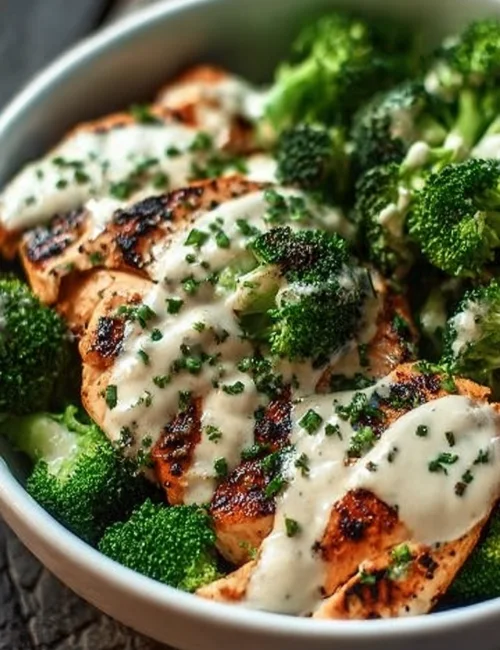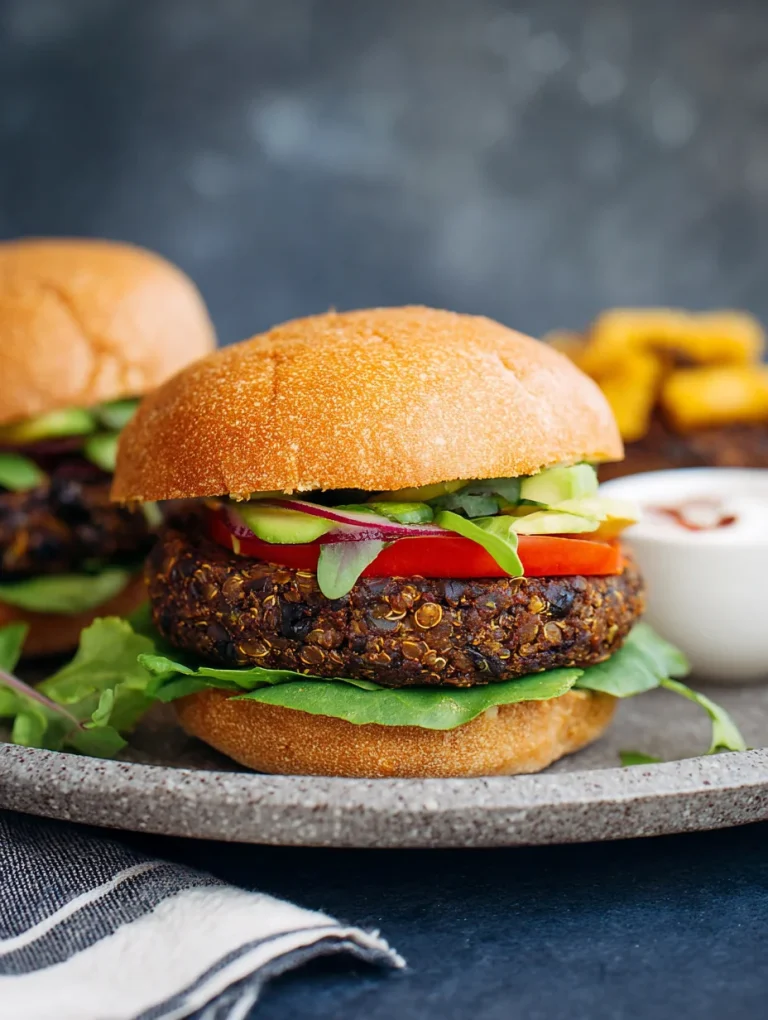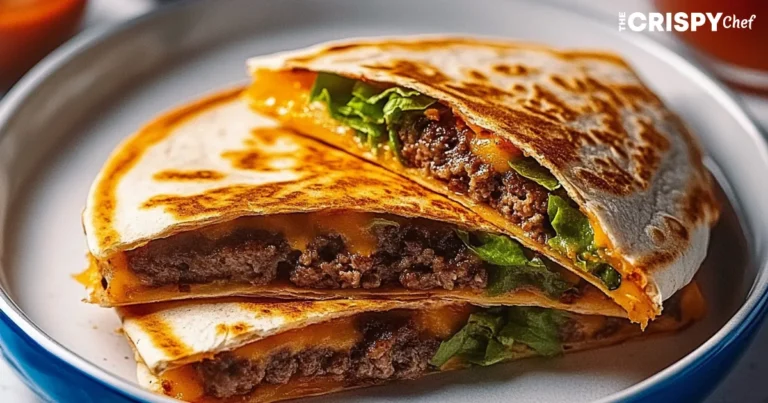Want a tasty, creamy hummus recipe No tahini? No worries! This simple recipe swaps Greek yogurt for tahini, making it nut-free and allergy-friendly. You can make it in 5-10 minutes with just a few pantry items. It’s great for dipping, spreading, or adding to veggie dishes.
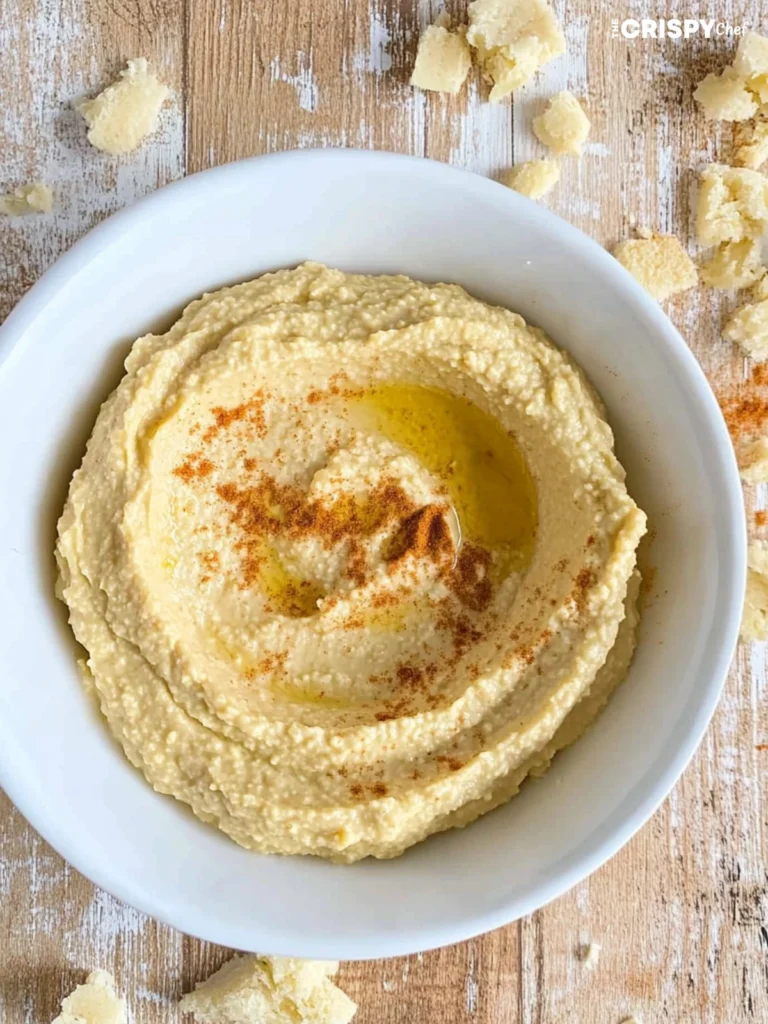
Key Takeaways
- Quick and easy homemade hummus without tahini
- Uses Greek yogurt for a creamy, nut-free texture
- Allergy-friendly recipe suitable for vegetarian and gluten-free diets
- Pantry-friendly ingredients for a cost-effective hummus option
- Versatile dip or spread for snacks, sandwiches, and more
Why Make Hummus Without Tahini
Tahini, a paste from ground sesame seeds, is key in traditional hummus. Yet, there are good reasons to try a tahini-free version. Our creamy hummus recipe no tahini has a 5 out of 5 stars rating. It’s a great alternative for your next homemade batch.
Benefits of Tahini-Free Hummus
- Allergy-friendly: Tahini-free hummus is safe for those with nut allergies. It’s perfect for school lunches, gatherings, and families with food sensitivities.
- Cost-effective: Tahini can be pricey and hard to find. Skipping it makes your hummus cheaper and easier to make at home.
- Simplicity: Making hummus without tahini is easier. It’s a great way for beginners to enjoy making this tasty spread.
- Mild flavor: Without tahini, the hummus tastes milder. You can add your favorite seasonings and ingredients to customize it.
Allergy-Friendly Alternative
For those with nut or sesame allergies, a tahini-free hummus is a safe choice. It uses only 100% chickpeas. This makes it safe and tasty for many diets.
Cost-Effective Option
Using canned chickpeas makes this hummus recipe affordable. It’s a budget-friendly way to enjoy homemade hummus without the cost of tahini.
Essential Ingredients for No-Tahini Hummus
Making delicious, creamy hummus doesn’t need tahini. You can use simple pantry items to make a tasty hummus. The main ingredients are canned chickpeas, Greek yogurt, lemon juice, garlic (optional), cumin, salt, and olive oil.
Chickpeas are the base, packed with protein. Greek yogurt adds creaminess, like tahini. Lemon juice brings a tangy flavor. Garlic, cumin, and salt add taste. Olive oil makes it smooth and velvety.
These ingredients make a hummus recipe no tahini that’s just as good as the original. The best thing is, you don’t need special ingredients. This makes homemade hummus easy to make.
If you want to save time, money, or follow dietary rules, try this hummus recipe no tahini ingredients. It’s quick to prepare and delicious. It’s great with many dippers and toppings.
Kitchen Equipment You’ll Need
Making tasty tools for making hummus at home needs the right kitchen tools. You’ll need a top-notch food processor and the right containers to store it. These tools make making hummus easy and fun.
Food Processor Options
A good food processor is key for making tools for making hummus. Look for one with a strong motor and sharp blades. It should blend chickpeas, garlic, and other ingredients smoothly. A heavy-duty blender can also do the job well.
Storage Containers
After making your tools for making hummus, you’ll need to store it right. Use airtight, BPA-free containers to keep it fresh for up to 5 days in the fridge. You can also freeze it for up to 3 months.
Measuring Tools
Getting the right measurements is important for perfect tools for making hummus. Use quality measuring cups and spoons. A fine microplane is handy for grating garlic, if you like.
With the right kitchen tools, you can make creamy, tasty tools for making hummus at home. Enjoy making it and relish the delicious outcome!
Hummus Recipe No Tahini – Step-by-Step Guide
Making a tasty easy hummus recipe without tahini is simple! Just follow these easy steps to make a creamy, flavorful dip. It’s great for snacking or as a side. Let’s begin!
- Rinse and drain a 15.5 oz can of chickpeas (also known as garbanzo beans). You can also use 1 1/2 cups of cooked chickpeas.
- Add the chickpeas, 1/4 cup of fresh lemon juice, 2 tablespoons of extra-virgin olive oil, 1 minced garlic clove, 1/2 teaspoon of ground cumin, and a pinch of salt to a food processor.
- Blend the ingredients together until you achieve a smooth, creamy consistency, scraping down the sides as needed. If the hummus is too thick, add 2-3 tablespoons of cold water or aquafaba (the liquid from the chickpea can) to thin it out.
- Taste the easy hummus recipe without tahini and adjust the seasoning with more salt or lemon juice to your preference.
And there you have it! A delicious, easy hummus recipe no tahini ready to enjoy. Add a bit of extra olive oil and sprinkle with paprika, sumac, or za’atar for a finishing touch. Serve with pita bread, veggies, or your favorite crackers. Enjoy!
Tips for Achieving the Perfect Creamy Texture
Making smooth, creamy hummus without tahini is all about the right ingredients and blending. First, rinse your chickpeas well to get rid of extra salt. Then, blend them until they’re smooth and velvety, stopping to scrape down the sides as needed.
To get the perfect creamy hummus, add water or olive oil slowly while blending. This makes the ingredients mix well, creating a smooth hummus. Adding a spoonful of Greek yogurt can make it even creamier. For an ultra-smooth texture, use a blender instead of a food processor. The blender’s strong motor breaks down the chickpeas better.
Proper Chickpea Preparation
- Rinse canned chickpeas thoroughly to remove excess salt
- Blend chickpeas until smooth and velvety, scraping down sides as needed
Blending Techniques
- Gradually add water or olive oil while blending to achieve the perfect creamy texture
- Incorporate a spoonful of Greek yogurt for an extra creamy touch
- Use a high-powered blender for an ultra-smooth, velvety hummus
Moisture Balance Tips
The secret to creamy creamy hummus texture is finding the right moisture balance. Start with a few tablespoons of water or olive oil and add more as needed. Blend well between each addition. This ensures the hummus is silky-smooth without being too thin or watery.
“The secret to the perfect creamy hummus is all in the blending. Patience and a light touch with the liquids are key to reaching that luxurious, velvety texture.”
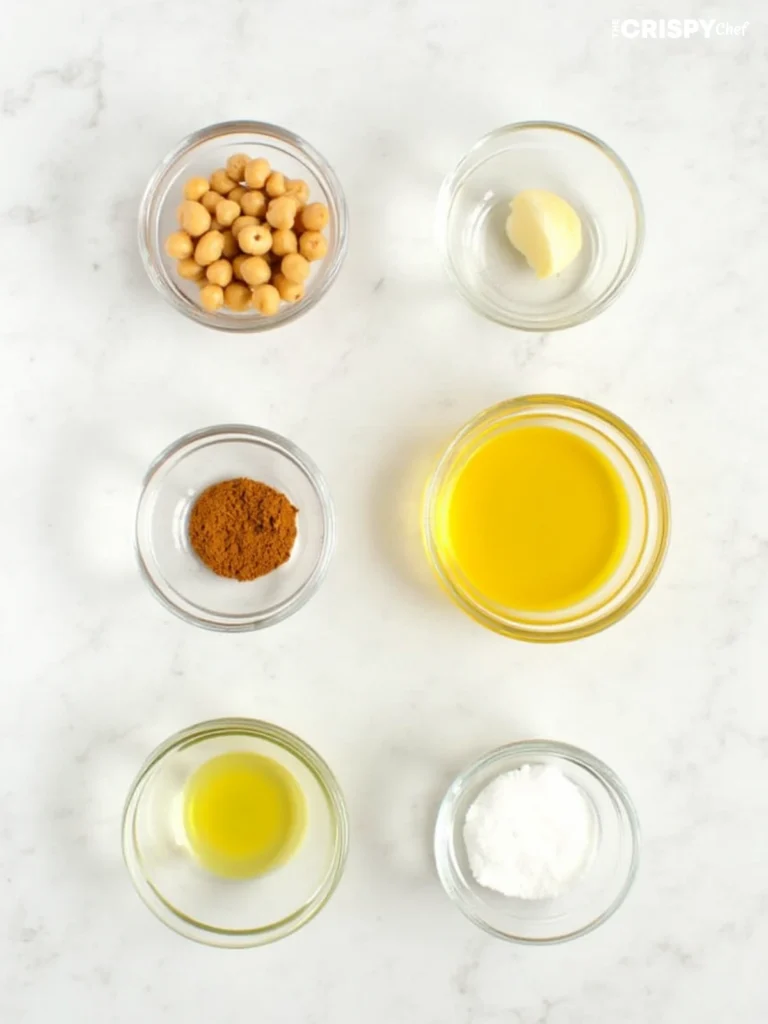
| Ingredient | Amount |
|---|---|
| Canned Chickpeas | 1 (15oz) can or 1 1/2 cups cooked |
| Lemon Juice | 1/4 cup (typically 1 large lemon) |
| Olive Oil | 2 tbsp, plus more for serving |
| Water/Aquafaba | 2-3 tbsp, as needed |
Creative Flavor Variations and Add-ins
Make your homemade hummus stand out by trying new flavors. There’s more than just the classic recipe. Let’s explore some tasty ideas to excite your taste buds.
Roasting veggies like carrots or pumpkin adds a sweet touch. These veggies blend well with the creamy hummus. Roasted garlic also adds a deep, caramelized flavor.
Lemon and dill hummus is perfect for citrus fans. For a spicy twist, add chili powder or cayenne. Roasted red peppers or beets bring a vibrant color. Peanut butter or avocado adds creaminess and a nutty taste.
Don’t forget about toppings and mix-ins. Try cumin seeds, flavored olive oil, shallots, sesame seeds, pine nuts, or fresh herbs. You can make your hummus truly unique.
Get creative with your hummus flavors. Whether you want a vibrant red pepper version or a nutty peanut butter one, the choices are endless. Enjoy making your own hummus flavor variations without tahini.
Serving Suggestions and Pairings
No-tahini hummus is great with many foods. It’s perfect as a tasty dip or a flavorful addition to meals. This creamy chickpea dip opens up endless possibilities.
Dipping Options
Enjoy your homemade hummus with fresh, crunchy veggies. Try it with sliced cucumbers, carrot sticks, bell pepper strips, and celery. For something more filling, pair it with pita bread, crackers, or tortilla chips.
Spread Applications
Hummus is also a nutritious spread for sandwiches, wraps, and toast. Use it on your favorite bread or as a base for dishes like hummus pizza or hummus quesadillas. It’s also great as a creamy dressing for salads or a dip for roasted veggies.
It goes well with Middle Eastern and Mediterranean flavors. Try it with falafel, shawarma, or grilled meats. For a simple snack, pair it with fresh fruit like apples, pears, or strawberries.
Remember, there are countless ways to serve how to serve hummus. Be creative and enjoy this versatile dip in new and exciting ways!
Storage and Shelf Life Tips
Storing your homemade hummus right is crucial. It keeps it fresh and creamy. Here are some tips to help your homemade hummus last longer:
- Keep your hummus in an airtight container in the fridge. This stops it from getting stale and keeps it tasty.
- Homemade hummus stays good for 5-7 days in the fridge. You can freeze it for up to 2 months if you want it to last longer.
- Freezing? Put the hummus in an airtight container or ice cube tray. This keeps air out and keeps it fresh.
- To thaw frozen hummus, just put it in the fridge overnight or at room temperature for a few hours. Stir it well before eating to mix everything back together.
- After thawing, eat your hummus within 3 days for the best taste and safety.
By following these easy tips, you can enjoy your homemade hummus for longer. You’ll love the fresh, creamy taste every time.
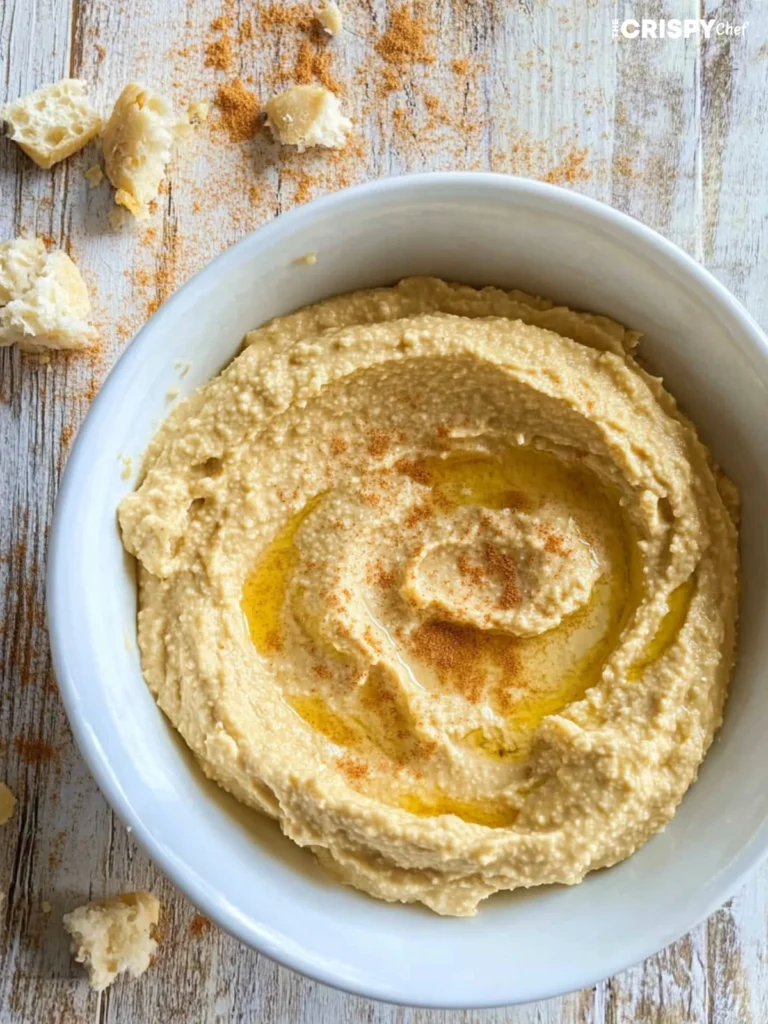
Remember, the shelf life of homemade hummus depends on a few things. Proper fridge storage, keeping air out, and eating it within a certain time are key. With a bit of care, your homemade hummus will last longer, and you can enjoy it for days.
Nutritional Benefits and Dietary Information
Hummus is a tasty dip made from chickpeas. It’s packed with nutrients. A 2-tablespoon serving has about 70-100 calories, 4-5 grams of protein, and 2-3 grams of fiber. It also has important vitamins and minerals.
This recipe is free from nuts and can be made without dairy. Just use plant-based yogurt or skip it altogether.
Chickpeas are the main ingredient in hummus. They are full of plant-based protein and fiber. These help you feel full and may help with weight management.
Studies show chickpeas and hummus can help with weight loss. They may also lower the risk of obesity and keep your BMI in check.
This makes hummus a great choice for those wanting to eat more plant-based foods. It’s nutritious and can be part of a healthy diet.
| Nutrient | Amount per 2 tbsp (30 ml) |
|---|---|
| Calories | 70-100 calories |
| Protein | 4-5 grams |
| Fiber | 2-3 grams |
| Fat | 2.7 grams |
| Sodium | 72.1 milligrams |
| Carbohydrates | 3 grams |
| Sugars | 0.04 grams |
| Iron | 0.5 milligrams |
| Magnesium | 6.8 milligrams |
| Zinc | 0.3 milligrams |
| Folate | 17 micrograms |
Hummus is a great addition to your diet. It’s versatile and nutritious. You can use it as a dip, spread, or in many dishes.
This hummus nutrition facts recipe is packed with protein and fiber. It’s good for your health. Talk to your doctor to see how it fits into your diet.
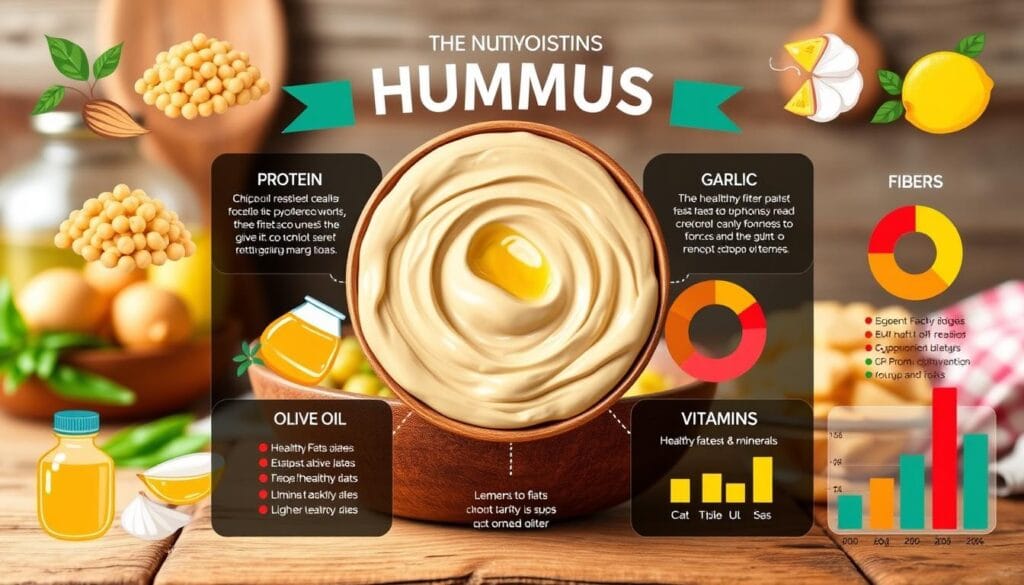
Conclusion
This quick and easy homemade hummus recipe no tahini is a delicious, creamy dip. It’s versatile, allergy-friendly, and customizable. With simple ingredients and minimal prep time, you can enjoy fresh, flavorful homemade hummus that outshines store-bought versions.
Whether you’re looking to avoid tahini, save money, or create a personalized flavor profile, this easy homemade hummus recipe is a great option. It’s satisfying and nutritious for snacking and entertaining.
The key to this homemade hummus recipe is the use of roasted red peppers. They add a sweet and smoky element to the dip. By making it from scratch, you can control the texture and adjust the seasonings to your taste.
Plus, the cost-effective nature of this easy homemade hummus makes it a practical choice for your kitchen.
Enjoy this homemade hummus as a versatile dip, spread, or component of a Mediterranean-inspired meze platter. With its creamy consistency and diverse flavor potential, this easy homemade hummus recipe is sure to become a staple in your household.
FAQ
What is the key difference between this hummus recipe and traditional hummus?
This recipe doesn’t use tahini, unlike traditional hummus. Instead, it uses Greek yogurt for a creamy texture.
Why would I want to make hummus without tahini?
Making tahini-free hummus is good for those with nut allergies. It’s also cheaper and uses common kitchen ingredients.
What basic ingredients are needed for this easy hummus recipe?
You’ll need chickpeas, Greek yogurt, lemon juice, garlic (if you like it), cumin, salt, and olive oil. These ingredients make a tasty, creamy hummus without tahini.
What kitchen equipment is required to make this homemade hummus?
You need a food processor or blender for a smooth texture. Also, airtight containers for storage and measuring tools for the right amounts.
How do I make this easy tahini-free hummus step-by-step?
Rinse and drain chickpeas, then mix all ingredients in a food processor. Blend until smooth, adding water or oil as needed.
How can I customize the flavor of this hummus recipe?
Try adding roasted veggies, garlic, lemon and dill, chili, beetroot, or roasted red peppers. You can also use peanut butter or avocado. Top it with cumin seeds, olive oils, shallots, sesame seeds, pine nuts, or herbs.
How long does homemade hummus without tahini last?
Keep it in the fridge for 5-7 days in an airtight container. Freeze for up to 2 months, then thaw and stir well before serving.
Is this tahini-free hummus recipe healthy?
Yes, it’s nutritious with protein and fiber. A 2-tablespoon serving has 70-100 calories, 4-5g protein, and 2-3g fiber. It’s also nut-free and can be dairy-free.
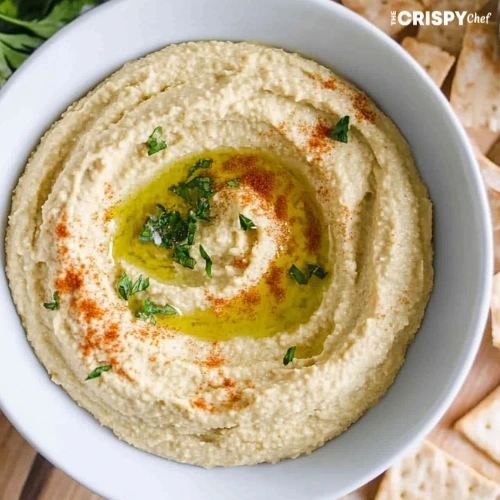
hummus recipe no tahini
Equipment
- Food processor
- Measuring cups and spoons
- Airtight storage container
Ingredients
- 1 15oz can of chickpeas (or 1 1/2 cups cooked), rinsed and drained
- 1/4 cup fresh lemon juice about 1 large lemon
- 2 tbsp extra-virgin olive oil plus more for serving
- 1 garlic clove minced (optional)
- 1/2 tsp ground cumin
- Pinch of salt
- 2-3 tbsp cold water or aquafaba as needed
Instructions
- Rinse and drain the chickpeas thoroughly to remove excess salt.
- In a food processor, combine chickpeas, lemon juice, olive oil, garlic (if using), cumin, and salt.
- Blend until smooth, scraping down the sides as needed.
- Gradually add water or aquafaba to achieve the desired creamy consistency.
- Taste and adjust seasoning with more salt or lemon juice as desired.
- Transfer to a serving dish, drizzle with olive oil, and garnish with paprika, sumac, or za’atar if desired.


